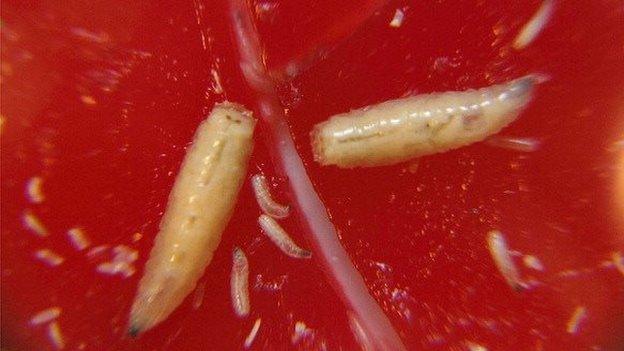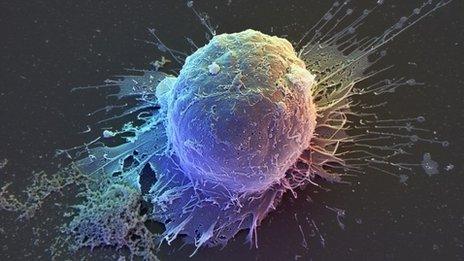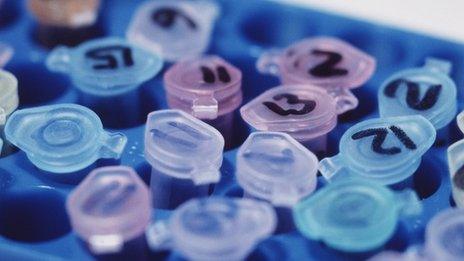£4m Welsh Wound Innovation Centre launch in Llantrisant
- Published
Wound care is thought to account for around 5% of the Wales NHS budget
A new £4m research centre to tackle the "silent epidemic" of wound care has been launched.
Treating wounds in Welsh hospitals or in the home and at clinics by nurses costs the NHS in Wales around £156m a year.
The Welsh Wound Innovation Centre (WWIC) aims to improve treatments and lower hospital admissions and stays.
Based in Llantrisant, it will include working with patients at the nearby Royal Glamorgan Hospital.
Wound care - which includes dealing with problems like pressure sores and infection after surgery - is thought to account for around 5% of the NHS's overall budget and is rising.
The new centre is co-headed by Prof Keith Harding, head of Cardiff University's Wound Healing Research Unit, which has been researching wound healing for more than 22 years.
This has included pioneering work in the use of maggots for cleaning wounds.
In a typical hospital, between 25% and 40% of beds are occupied by patients with a wound, while nurses in the community can spend between 25-75% of their time treating them.
"Treating patients with wounds, whether chronic, acute or traumatic, is a surprisingly expensive problem for the health service - not to mention the emotional costs it inflicts on patients and their families," said Prof Harding.
He said the centre would look at improvements to wound prevention and treatment, aimed at fewer hospital admissions and shorter stays.

WOUND HEALING CASE STUDY - Lauren Brimble, 27, from Abertillery, had bilateral deep vein thrombosis (DVT) and has suffered leg ulcers.
She took part in clinical trials for new dressings developed by the Wound Healing Research Unit.
"We found the Cardiff research unit on the internet and although I was out of the area I arranged to see them and they took me on.
"I was in excruciating pain with my left leg, I've never known anything like it and no pain killers would make a difference. But they got on top of it. I had different trials of dressings on each leg over the summer - the right one is fine now and the left one has improved significantly.
"The treatment is ongoing but it's been amazing. It's one of those things that unless you've had it you can't understand what it means and the effect it has on your life."

The WWIC was set up with £2.5m funding from the Welsh government, as well as the seven local health boards and the private sector. It hopes to be paying for itself within three years through grants and commercial sources.
'New ways'
The centre is already supporting the work of five small businesses based in Wales, as well American and Australian companies.
It employs 31 people and aims to attract at least 11 investments from abroad, creating a further 45 jobs over the next five years.
It recently won a research award from the Medical Research Council (MRC) to help scientists develop a diagnostic test to improve the treatment of chronic wound management.
Health Minister Mark Drakeford said: "Our population is getting older and the time and cost associated with treating and managing wounds is set to increase. Only by looking at new ways of treating wounds can we manage this trend and improve people's quality of life."
- Published3 September 2014

- Published19 March 2013

- Published3 September 2014

- Published22 July 2013
